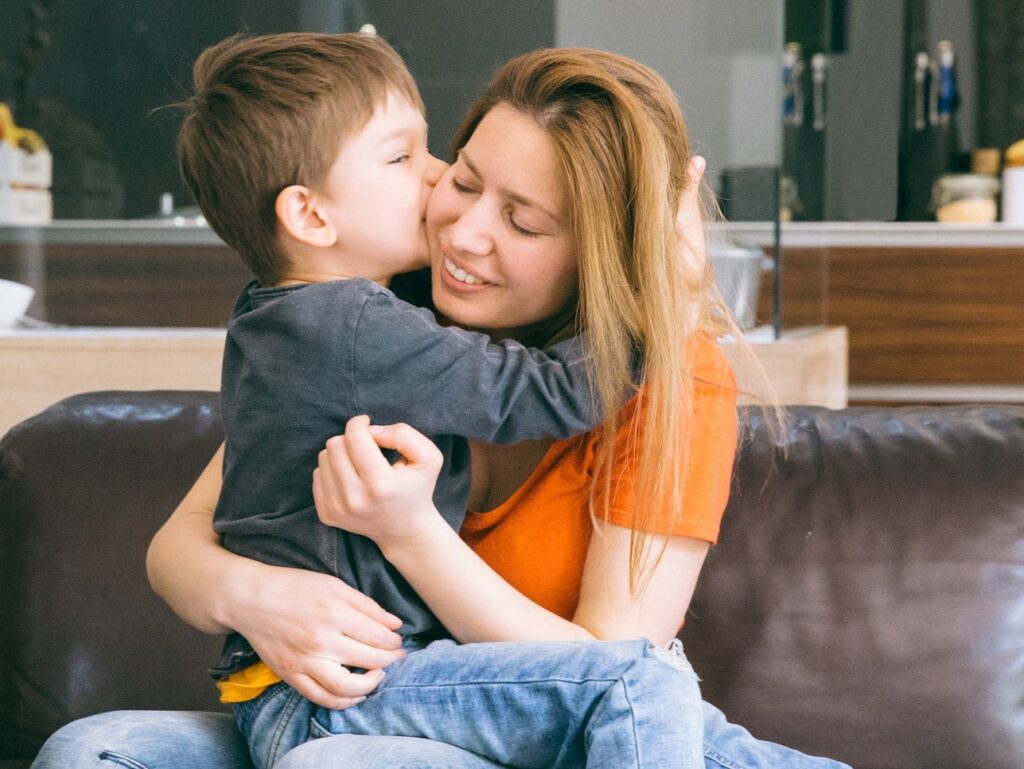Helping children understand their emotions and regulate their behaviour takes work.
Children do well if they can. Behaviour is a form of communication. A child might be communicating ‘I’m hurt’, ‘I don’t want to’ or ‘I’m overwhelmed’ through their behaviour. You can get support to help your child learn how to understand their emotions and behaviour.
How to get help
1. Check if there is an underlying health issue or concern
Health issues and pain can impact children’s behaviour, so it’s always worth checking with your GP or dentist to see if there is an underlying issue. Behaviour can also be a sign of bullying or major changes at home or school. Ask your child and the adults in their life if something is upsetting them.
2. Talk to a trusted professional
Talk about your concerns with a trusted professional such as your GP, Maternal Child Health nurse, paediatrician, or therapist. They can help you work out any major concerns and put in place steps to support your child’s behaviour.
3. Free parenting workshops
Understanding your child’s behaviour and feelings can help you feel calmer, more confident, and it can make a difference to your whole family. It helps if both parents agree. There are lots of free, online and in-person parenting workshops:
Triple P: Positive Parenting Program
Relationships Australia and Drummond Street Services both offer the following workshops:
- Tuning into kids
- Bringing up great kids
- Circles of security
4. Build communication
Communication is more than talking. Helping your child to communicate their feelings by using and responding to their preferred communication system (words, gestures, or pictures), helps them feel heard. Giving your child options, so they can say what they want, also helps them communicate how they are feeling. A speech pathologist can work with you to support your child with communication.
5. Help your child with sensory issues
Some children can be overwhelmed by noises, smells, lights and textures. If your child reacts strongly to particular sounds, clothes, or food, they may be experiencing sensory processing difficulties. Working out what your child finds uncomfortable and finding ways to reduce that can help them feel calmer. An occupational therapist can help you put in place daily routines to support your child’s sensory issues.
6. More sleep can help
Many children with disability have trouble falling asleep or staying asleep. This can affect how they learn, play, and feel during the day. And when parents don’t get enough sleep, life gets harder for everyone. Your local early parenting centre can provide sleep support up to age four.
Tweddle provides statewide telehealth sleep support.
Amaze has produced information for families with autistic children, but the strategies are relevant to all.
7. Behaviour support in your child’s NDIS plan
You may be able to get behaviour support in your child’s NDIS plan. Support can include therapy, a Behaviour Support Plan, or training and strategies to support your child and family.
8. Behaviour support at school
If you or your child’s teacher has concerns about your child’s behaviour at school, you may be able to get behaviour support at school. This may include working with your child’s Student Support Group to develop a Behaviour Support Plan. If your child has a Behaviour Support Plan developed by an NDIS-funded therapist, share this with your child’s school.






